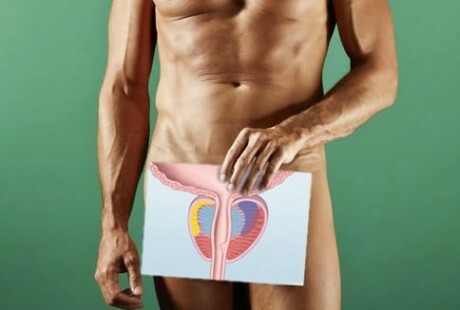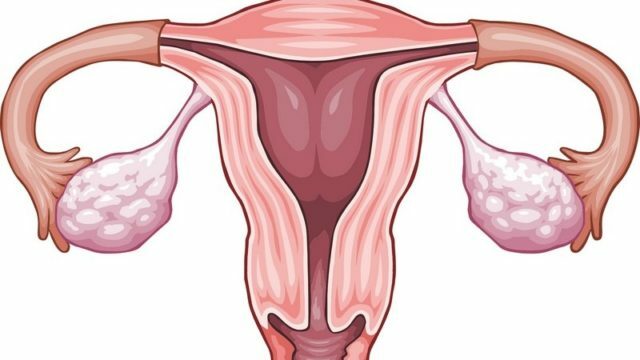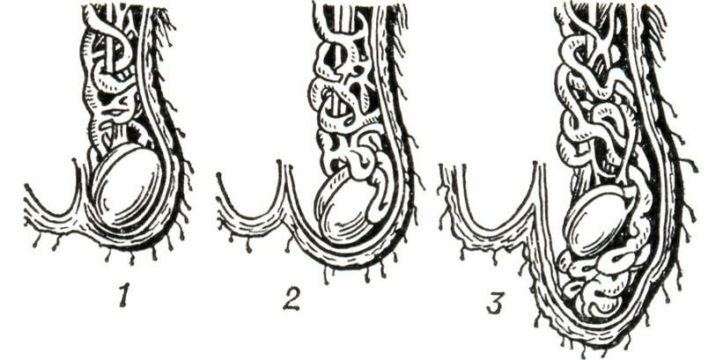Prostatitis is an inflammatory disease of the prostate. It can occur for various reasons, be acute or chronic( the duration of the pathological process is considered to be a criterion for more than three months), and is always accompanied by a decrease in potency and a violation of urination. The cause of the inflammatory process can be bacteria, for example, with sexually transmitted infections, but most often develops abacterial prostatitis.
Causes and pathogenesis of

The main cause of abacterial prostatitis is congestion in the tissues of the prostate. It can be as stagnation of a secret of a prostate at long sexual abstinence, and stagnation of a blood and a lymph at an inactive way of life. Stagnation leads to the release of fluid through the walls of the vessels into the prostate tissue, forming edema and accompanying inflammation of the gland. Prostate increases in size, narrowing the lumen of the urethra.
Chronic non-bacterial prostatitis often develops in men after forty or fifty years, although recently there has been a tendency to "rejuvenate" it, as well as many other chronic diseases, especially in men. Contribute to its development factors such as malnutrition - the abundance of fatty foods and alcohol with a lack of vitamins, fiber and water;unhealthy lifestyle - unstable day regimen, sedentary work, lack of physical exertion, emotional overwork;disorder of a sexual life - disorderly communications, long periods of abstinence, interrupted and excessively tightened sexual acts. Overcooling or overheating of the inguinal area, non-observance of intimate hygiene alone can not cause abacterial prostatitis, but can greatly contribute to its development.
Symptoms of
Symptoms of abacterial prostatitis can be conditionally divided into three large groups - associated with the sexual function associated with urination and pain syndrome.
- Symptoms associated with sexual function:
- decreased potency,
- inability to orgasm or painful orgasm.
- Symptoms associated with urination:
- difficulty urinating, frequent urge to toilet,
- pain, rei, burning sensation when urinating.
- Pain syndrome can have different manifestations:
- genitalia - pain in the region of the penis and testicles,
- hip pain - pain in the perineum, on the inside of the thigh, sometimes lumbar. Pain increases with hypothermia and physical exertion.
- abdominal pain, localized mainly in the lower abdomen.
Chronic abacterial prostatitis usually differs from acute with less severity, but longer duration of symptoms - abdominal pain, urination and ejaculation become common, and the patient does not hurry with them to the doctor, starting the process on its own, about the fact that the treatment started on time is significantlyimproves the condition.
Complications of

Chronic inflammatory process in the prostate leads to permanent changes in its structure - the formation of sclerosis, cysts and stones. Sclerosis of the prostate is the replacement of the glandular tissue by a connective tissue that is incapable of producing a secret. This process begins simultaneously with inflammation, and it is impossible to track the moment of sclerosis formation only by symptoms - they remain the same. Only, unlike inflammation, sclerosis is irreversible. With the first stagnant phenomena in the ducts of the gland microliths begin to form, which eventually increase and become stones. Stones can not come out of the prostate, as happens with kidney and liver stones, but they block the lumen of the duct, lead to the formation of cysts, cause severe pain. All this together can lead to infertility, which is difficult to treat, and is not always completely cured. In addition, violations of potency are the cause of neuroses, and sometimes provoke more severe mental illness.
Despite all of the above, the forecast for life and work capacity is favorable. Prostatitis does not refer to disabling diseases, and its negative impact on sexual function can be minimized.
Diagnostics
The diagnosis of abacterial prostatitis is made in the event that there are signs of prostatitis, but there is no focus of infection. The signs of prostatitis include:
- characteristic complaints - pain, urination disorder, sexual dysfunction,
- presence of leukocytosis in the general blood test, with predominance of mature neutrophils and macrophages( signs of chronic inflammation),
- lean epithelium and leukocytes in general urine analysis - a sign of inflammatoryprocess in the genitourinary system,
- proteins markers of chronic inflammation and lesions of the prostate in biochemical blood analysis,
- increase and soreness of the prostate in digital rectal examination
- increase in size and change in the structure of prostate tissue with ultrasound.
Ultrasound of the prostate is carried out with a filled bladder, and allows to identify the signs of prostatitis, adenoma and prostate cancer. Finger rectal examination is always performed after ultrasound, since it has the risk of microtraction of the prostate, which can distort the picture of ultrasound and lead to incorrect diagnosis and treatment.
Treatment of

Non-bacterial prostatitis is treated on an outpatient basis - the doctor prescribes a regimen and a diet that helps to eliminate stagnant phenomena. For the treatment of prostatitis, various groups of drugs are used:
- non-steroidal anti-inflammatory drugs to reduce inflammation and pain,
- anti-inflammatory steroids with ineffectiveness of NSAIDs,
- anticholinergic drugs to improve secretion outflow from the prostate,
- angioprotectors for prevention of vascular microassay,
- vasodilators for improving blood flow,
- immunomodulators for the prevention of autoimmune inflammation,
- in some cases - antibiotics for the prevention of bacterial complications.
Recently, adrenoblockers, drugs affecting cytokine and urate metabolism, immunosuppressors are often prescribed - all of these drugs have not been used previously for the treatment of prostatitis, but they can, according to the latest studies, significantly alleviate its symptoms and, as a result, accelerate recovery.
In some cases, it is necessary to resort to surgical treatment - if chronic non-bacterial prostatitis led to sclerosis of the prostate, the neck of the bladder, urethra, or the seminal tubercle. Another indication for the operation is large stones that disrupt the nutrition of neighboring tissues, preventing the outflow of the secretion of the prostate. Such stones can not retire independently, and one has to resort to their fragmentation. During the operation, usually use the endoscopic method - transurethral electrosurgery, this is the least traumatic of possible methods. The endoscope is inserted into the urethra, then the necessary manipulations( resection of the sclerotized site, crushing of the stones, etc.) are performed under the ultrasound control, then it is removed and within an hour or two the patient can go home. The operation is done under local anesthesia, the recovery period after it takes about a day and does not require a multi-day stay in the hospital.



